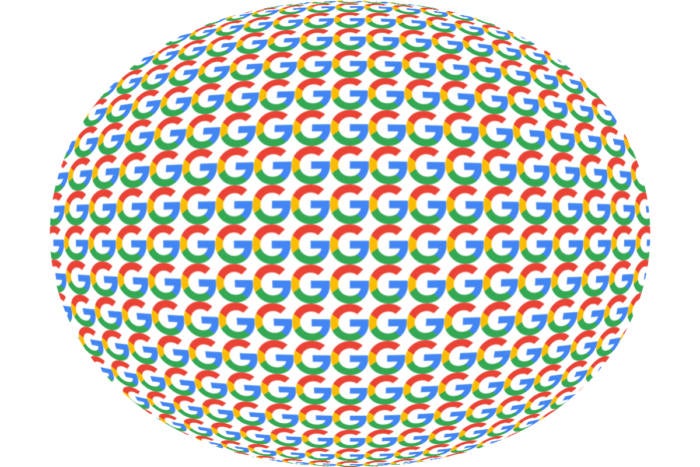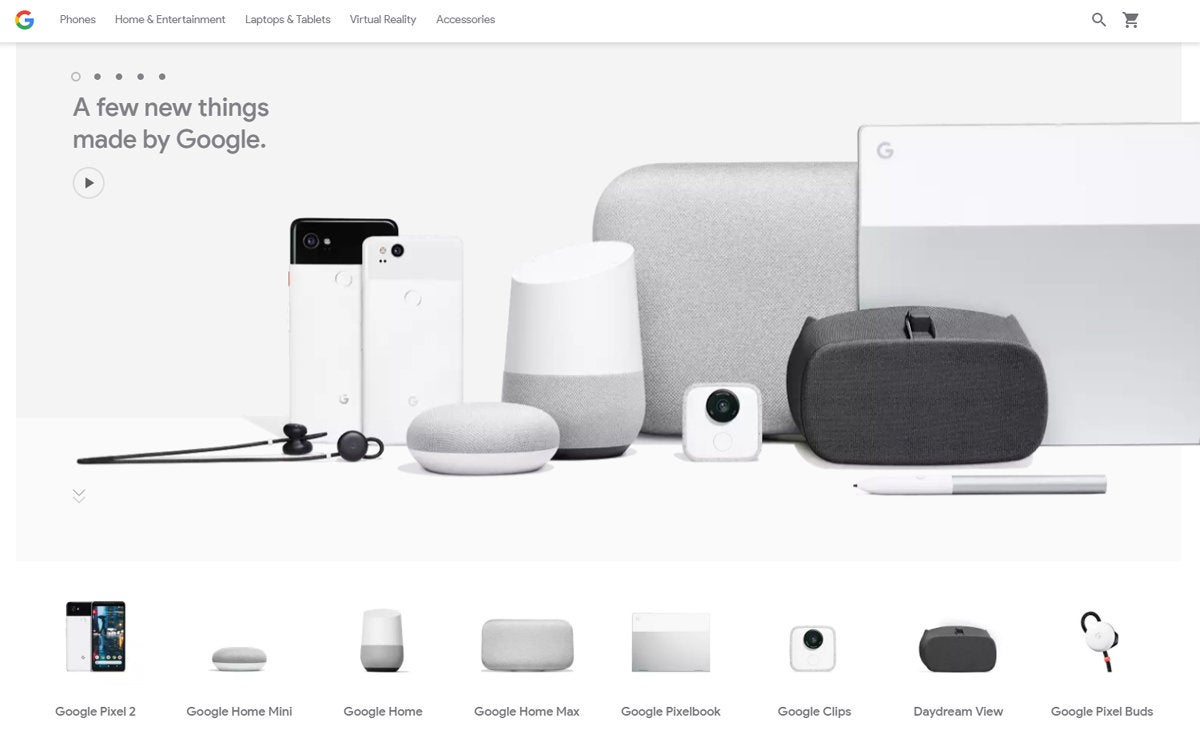

Welcome to the era of the Google ecosystem | Computerworld
source link: https://www.computerworld.com/article/3233300/mobile-wireless/google-ecosystem.html
Go to the source link to view the article. You can view the picture content, updated content and better typesetting reading experience. If the link is broken, please click the button below to view the snapshot at that time.

Welcome to the era of the Google ecosystem
Android? Nope. Chrome OS? Nah. Google's new focus is firmly on itself as an ecosystem — and that is one monumental change.

By now, you probably know everything there is to know about Google's Pixel 2. You've no doubt read the reviews, mulled over the bigger-picture significance, and gotten a pretty good feel for whether the phone's right for you.
Before you shift your attention to the next shiny thing, though, hang on a second: With the basics behind us, I've been working to wrap my noggin around the broader implications surrounding the Pixel 2's launch and Google's ever-expanding hardware efforts. And more than ever, I'm convinced what we're seeing right now is but a tiny sliver of a much bigger story.
"Yadda yadda yadda," you're probably thinking. "What's that mustachioed old moose rambling on about now?" Well, Frankus, let me tell you: When you step back and look at everything we've seen from Google this month, it seems clearer than ever that the company is carving out its own niche within its platforms — effectively starting an effort, in other words, to transition away from a focus on Android as an ecosystem and instead toward a focus on Google as an ecosystem. And that, suffice it to say, is a momentous shift.
Think about it: From the get-go, Google's goal as a company has been to get you online and using its services as much as possible, no matter what vehicle you choose. Even with its Nexus devices of yesteryear, the focus was always on showcasing and emphasizing the strengths of Android as an ecosystem — because at the end of the day, it didn't matter if you were using Google's device or Samsung's (or heck, even JimBob's); as long as you were spending as much time as possible on the internet and engaged with Google services, the company could continue to collect data about you and ultimately serve you more effective targeted ads.
So for Google, pushing Android as an ecosystem always made sense. Regardless of your device's make or model, your Android experience revolved around things like Gmail, Google Drive, the Google Play Store, and — of course — Google Search, be it through the box on your home screen, the Chrome browser, or any other integrated method. In more recent years, the Google Assistant has also taken an increasingly prominent role as the "next-gen" search appliance.
But increasingly, Google's been going up against some friction that gets in the way of that model's once-sound setup. Companies that control the lion's share of Android devices are pushing their own apps and services — including browsers, app stores, and allegedly "intelligent" assistants — and simultaneously pushing Google's equivalents out of the spotlight. Some phones are even shipping with (gasp!) Microsoft apps and services installed by default.
Perhaps it was inevitable, then, that Google's focus would move from emphasizing Android as the common denominator to emphasizing Google as the unifying thread. And boy, is such a pivot picking up steam fast.
[ Learn how IT can harness the power and promise of 5G in this FREE CIO Roadmap Report. Download now! ]
[ To comment on this story, visit Computerworld's Facebook page. ]
Consider:
1. All the new ways the company is starting to tie Google devices together for a uniquely cohesive experience.
The Pixel phone is the only device that fixes all the most common complaints about Android. It's the sole device to offer consistently timely and reliable software updates, period — something that seems especially pertinent this week — and the only device to guarantee a full three years of updates for both OS and security releases. That much we already knew.
Now, though, the Pixel also works hand in hand with the Google Pixelbook — which, despite technically running a different operating system, offers an increasingly consistent user experience. This is no understated connection, either: The Google Store prominently promotes the idea that the two products are "better together." The Pixelbook provides instant tethering with Pixel phones, the site advises potential purchasers, and you need only one charger to handle both devices.
The notion of this new Google device ecosystem is equally present in the promotion of the $99 Pixelbook Pen, which features a thus-far-exclusive form of Assistant integration and which Google proudly proclaims is "designed for Pixelbook."
The Pixel Buds, meanwhile, offer a real-time in-ear translation feature that works exclusively with — you guessed it — the Pixel phone. And remember that theme we were talking about a second ago?
Even the new Google Clips camera, which actually works with any Android or iOS device, is being marketed as "made better" with the Pixel phone and its Google Photos experience.
Google's Nest wing is also getting in on the action: As part of this month's grand hardware announcement, the company unveiled several fresh forms of Assistant integration with its products — including the newly added ability to send a live view from your Nest Cam to a Chromecast by speaking a command to the Assistant on any device (!) and a feature for its upcoming Nest Hello video doorbell that'll let you hear who's at your door via any Google Home speakers in your house (using Google-powered facial recognition, of course).
And there's more yet:
2. The quiet launch of a new 'Made for Google' certification program.
Alongside its Pixel 2 launch, Google snuck in a noteworthy little tidbit: It's starting a new "Made for Google" program for accessories. Any approved partner-produced products will feature a special badge on their packaging — "so you know they've been certified to meet Google's compatibility standards," as the company puts it.
Made...for Google. Those last two words speak volumes. (And if the idea of such an effort sounds familiar — well, it should.)
3. The quiet reframing of the Google Store as a place to buy Google's own products — and nothing else.
Up until this month, the Google Store featured a wide range of products related to the company's various platforms: Android, Chrome OS, Chromecast, Android Wear, and so on. Following the Oct. 4 event, something changed.
Visit the Google Store now, and you'll see only Google-made devices along with the "Made for Google" accessories that support them. No Motorola phones. No Samsung Chromebooks. No Huawei Android Wear watches. Just Google stuff. That's it.

Google also took the unusual step of adding a link to its storefront right on the Google.com home page, further emphasizing the importance of this now-company-specific retail center. And it hinted at plans to expand the store's reach to a number of new countries, including Mexico, Brazil, and Indonesia.
The primary focus is no longer about platforms — it's about Google
Each piece of this puzzle in and of itself may seem small, but considered together as a whole, these changes paint a dramatic picture of Google's evolving direction. (And let's not forget that Google also holds the unusual advantage of having its own specialty wireless service for its phones, complete with cost-saving perks for multi-device users. The company's mostly kept that as an out-of-the-way footnote so far, but who knows? That may well change before long.)
Now, let's be real: Google most certainly still has its work cut out for it — particularly when it comes to consumer awareness and product availability — and the mobile market obviously isn't going to morph overnight. Still, it's hard not to look at this shift in ecosystem prioritization and see the seeds of something significant being planted. The primary focus is no longer about platforms like Android and Chrome OS; it's about Google, plain and simple — and the way Google products work together to benefit the user.
That sure seems like the start of something big.
Recommend
About Joyk
Aggregate valuable and interesting links.
Joyk means Joy of geeK
